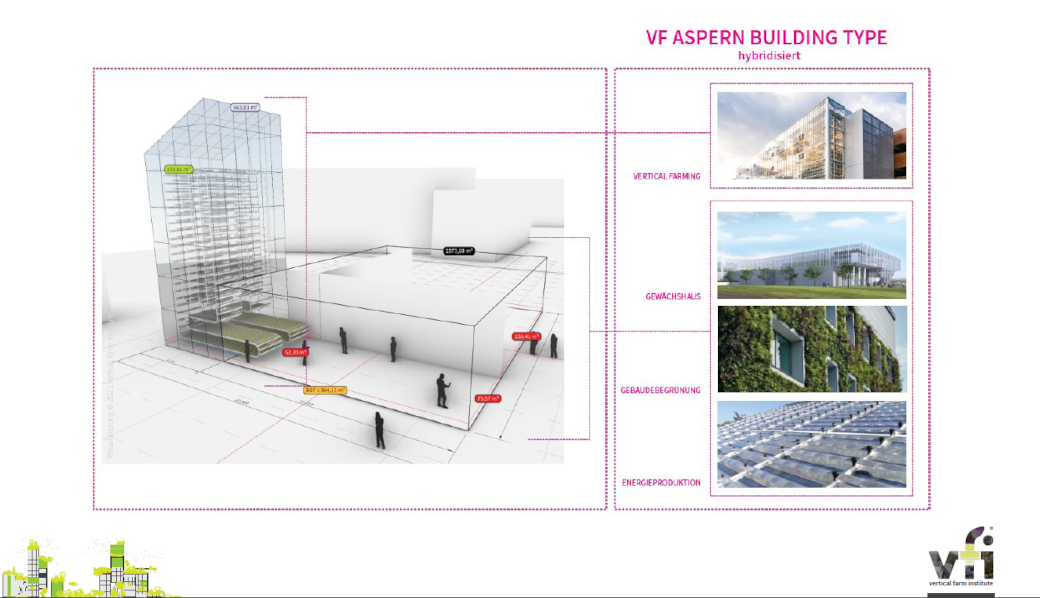Vertical Farm Aspern - Democratization of vertical farming under consideration of parameters of circular economy
Short Description
Starting point / motivation
More and more experts are questioning whether the Paris climate goals will be achieved. Moreover, there are already several tipping points within the range of the intended targets for limiting global warming that could perhaps already be reached. Therefore, it is necessary to take a closer look at food production and to include it more in the overall measures that will be taken in the future for the expected changes in environmental conditions resulting from climate change.
The exploratory project "Vertical Farming" for a vertical farm for the "Seestadt Aspern", an urban development project in Vienna preceded this project. It reveals potentials regarding radical reduction of required land area for food cultivation, contains guidelines and recommendations for a resource-saving and energy-saving urban food production and sets impulses for potentials regarding the development of a resilient city of the future - under consideration of climate and energy targets.
Contents and goals
Based on the project "Vertical Farming", the multidisciplinary team of this consortium is developing a demonstrator, which aims to be an example of a new building typology - the vertical farm.
In addition to clearly defined objectives such as energy efficiency, healthy and locally produced food - available throughout the year - while radically reducing resource consumption, the functional and spatial program to be developed maps the entire food value chain, reducing externalities that are immanent in the current system (transport, CO2 emissions, logistics, etc.).
This type also has a USP through the involvement of the users in the operational business (democratization of vertical farming) and is radically different from the currently much discussed plant factories and SKYFARM 2030.
Methods
The aim of the three-year R&D project is to make the opportunities and potential of vertical farms tangible, experienceable and measurable for urban developers, property developers and citizens.
This will be done through monitoring, external quality management and an extended dissemination and communication program in, on and around the demonstrator, which will be built in the course of the project on a building site in the Urban Lakeside Aspern - provided by Wien 3420 Aspern development AG.
Great importance is attributed to the democratization attempt of vertical farming in this project. Users will be given the opportunity to produce their own food all year round.
Expected results
The aim of the project is to build the Vertical Farm Aspern as a demonstrator, to optimize it and to identify scaling potentials for urban vertical food production. The innovative approach is to map all elements of the food value chain in a functional and spatial program (from sowing to sale) for the first time.
In the course of the project, meaningful results will be generated, especially with regard to actual energy and material consumption, quality of the products, needs of the urban population, and political and legal framework conditions.
Project Partners
Project management
- operational project management: tatwort Nachhaltige Projekte GmbH
- content project management: vertical farm institute GmbH
Project or cooperation partners
- GRÜNSTATTGRAU GmbH
- farmNOW Shared Farming GmbH i.G.
- SANlight Research GmbH
Contact Address
tatwort Nachhaltige Projekte GmbH
Julia Beck
Haberlgasse 56/3
A-1160 Vienna
Tel.: +43 (1) 409 55 81-224
E-mail: julia.beck@tatwort.at
Web: https://verticalfarminstitute.org/

